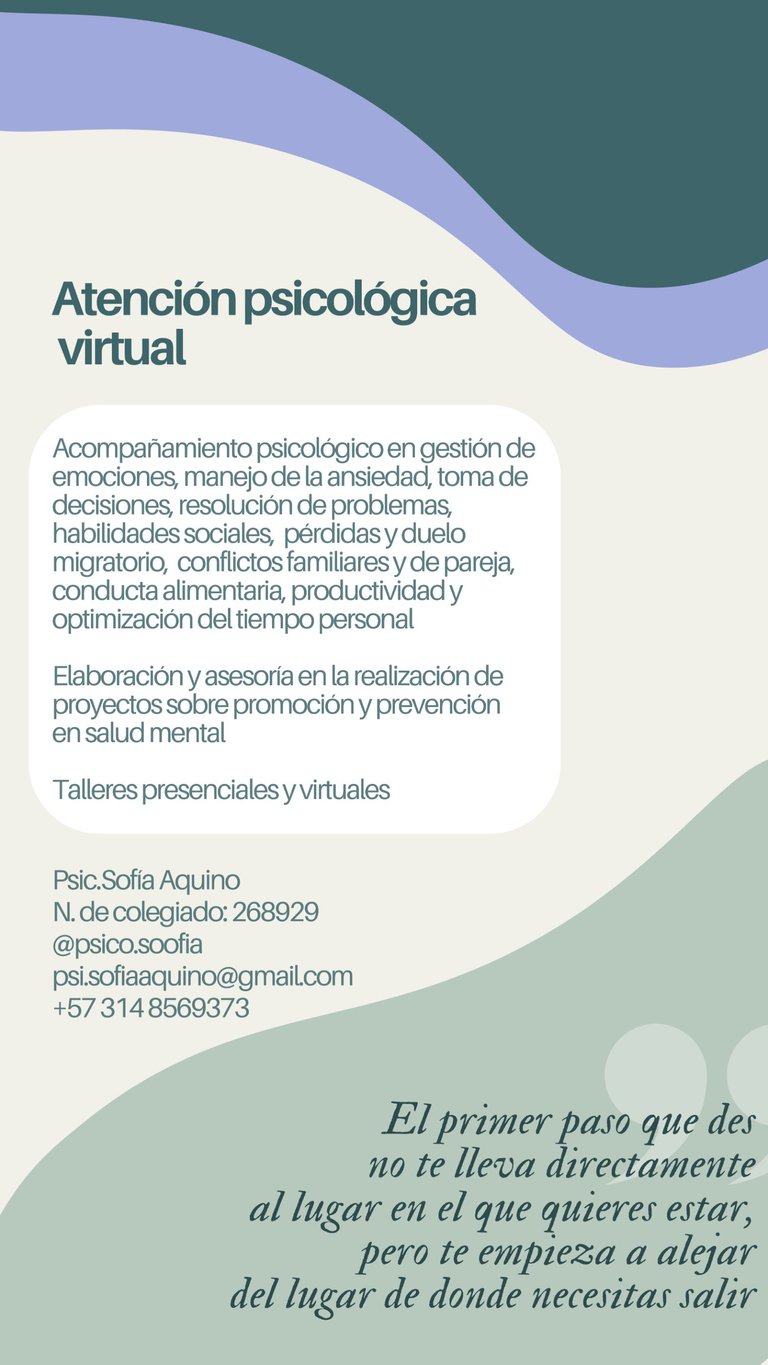Parálisis por análisis

No nos damos cuenta, pero minuto a minuto tomamos decisiones, algunas de estas serán más trascendentales que otras. Desde levantarnos de la cama, la ropa que escogemos para ese día, el desayuno que preparamos o decidir qué decir en una reunión de trabajo, todas son decisiones cotidianas, y la mayoría de ellas las realizamos en piloto automático. Algunos se tomarán un poco más de tiempo, por ejemplo, al escoger qué zapatos usar en función del clima, otros serán más prácticos y no tomarán en cuenta tantos aspectos, solo que se haga lo que se necesita hacer.
Ciertas etapas vitales precisan de decisiones más importantes en las cuáles tendremos que planificar un plan, distribuir recursos (mentales, físicos, relacionales), pensar en una meta final, prepararnos para los desafíos y problemas que se puedan presentar.
Son decisiones que están encadenadas entre sí, y no se podrá dar, por ejemplo, la número 10, sin que antes ocurra la número 1. Así, son momentos de la vida que se construyen en un paso a paso, hasta que, hemos resuelto lo que nos hemos propuesto, hemos llegado hasta donque queríamos llegar, hemos conseguido un resultado tangible con los requerimientos mínimos deseados, es decir, cualquier resultado por el que estuvimos trabajando durante un tiempo determinado (1 hora de trabajo, 1 día, 1 semana, 5 años, el tiempo será relativo a cada situación).
Cualquier plan podría simplificarse en los siguientes puntos: 1.- Evaluación. 2.- Ejecución. 3.- Revisión. 4.- Seguimiento.
Cada etapa tiene sus propias exigencias, si logramos entender que estas dependen entre sí, avanzamos continuamente hasta llegar a las etapas finales, donde esperamos, además, que los resultados sean positivos, cercanos a los esperados, de lo contrario, podríamos escoger volver a empezar.
Sucede, algunas veces, que la primera etapa, de evaluación, se prolonga en el tiempo. Es así pues la persona busca considerar todos los caminos posibles para tomar decisiones informadas, fundamentadas y que dejen el menor espacio al error. Eso no necesariamente será un problema, de hecho, es necesario que cada etapa se desarrolle en su propio tiempo, pues, como he dicho antes, la estabilidad de lo último dependerá un poco de lo primero. Sin embargo, se presenta el caso del análisis excesivo de la situación, la búsqueda de un camino impoluto, perfecto, la necesidad de tenerlo todo "bajo control" y de preveer todas las variables que puedan influir en los pasos siguientes. Sucede que los pasos siguientes no se dan, pues la persona se queda detenida firmemente en esta etapa inicial, es lo que podríamos conocer en psicología con la etiqueta de "Parálisis por análisis".
Cabe mencionar que esto ocurre tanto con proyectos elaborados, como lo puede ser el desarrollo de un emprendimiento, hasta con situaciones del día a día como puede ser responder un correo electrónico importante. En el ejemplo anterior podrían surgir las siguientes preguntas:
¿Cómo puedo decir lo que quiero decir de la mejor manera posible? ¿Me estoy dando a entender con este mensaje? ¿Si lo vuelvo a redactar con un tono diferente? Le preguntaré a alguien qué le parece lo que escribí. Tomaré una siesta, por la noche o mañana le contesto, de todas formas, la fecha límite es dentro de una semana. Ahora que vuelvo a leer el mensaje puedo inferir algo diferente. Quizás no saber la respuesta a lo que me preguntan es un problema, lo investigaré...Le he invertido horas a esto y ahora me siento más confundida que antes
Creo que el ejemplo anterior es muy claro. Es un tema que se ha visto asociado a la procrastinación o a la desmotivación, sin embargo, en mi experiencia, suele estar relacionado o con asuntos emocionales a trabajar, o con una expectativa muy alta sobre los resultados, los cuales se espera que sean excelentes, perfectos.
La autoexigencia en su justa medida será importante, siempre y cuando no nos limite a lograr lo que queremos.


We don't realize it, but minute by minute we make decisions, some of these will be more transcendental than others. From getting out of bed, the clothes we choose for that day, the breakfast we prepare or deciding what to say in a work meeting, all are daily decisions, and most of them we make on autopilot. Some will take a little more time, for example, when choosing what shoes to wear depending on the weather, others will be more practical and not take into account so many aspects, just that you do what you need to do.
Certain life stages require more important decisions in which we will have to plan a plan, distribute resources (mental, physical, relational), think about a final goal, prepare for the challenges and problems that may arise.
They are decisions that are chained together, and it will not be possible to make, for example, decision number 10 without first making decision number 1. Thus, they are moments of life that are built in a step by step, until we have solved what we have proposed, we have reached what we wanted to reach, we have achieved a tangible result with the minimum desired requirements, that is, any result for which we have been working for a certain time (1 hour of work, 1 day, 1 week, 5 years, the time will be relative to each situation).
Any plan could be simplified in the following points: 1.- Evaluation. 2.- Execution. 3.- Review. 4.- Follow-up.
Each stage has its own requirements, if we manage to understand that they depend on each other, we advance continuously until we reach the final stages, where we also hope that the results are positive, close to the expected ones, otherwise, we could choose to start all over again.
It happens, sometimes, that the first stage, of evaluation, is prolonged in time. This is so because the person seeks to consider all possible ways to make informed, well-founded decisions that leave as little room for error as possible. This will not necessarily be a problem; in fact, it is necessary for each stage to develop in its own time, since, as I said before, the stability of the latter will depend to some extent on the former. However, there is the case of excessive analysis of the situation, the search for an unpolluted, perfect path, the need to have everything "under control" and to foresee all the variables that may influence the following steps. It happens that the next steps are not taken, because the person remains firmly stopped in this initial stage, it is what we could know in psychology with the label of "paralysis by analysis".
It is worth mentioning that this happens both with elaborate projects, such as the development of an enterprise, and with day-to-day situations such as answering an important email. In the above example, the following questions may arise:
How can I say what I want to say in the best possible way? Am I making myself understood with this message? If I rewrite it with a different tone? I will ask someone what they think of what I wrote. I will take a nap, in the evening or tomorrow I will answer you, anyway, the deadline is a week from now. Now that I reread the message I can infer something different. Maybe not knowing the answer to what you are asking me is a problem, I will look into it...I have put hours into this and now I feel more confused than before.
I think the above example is very clear. It is an issue that has been associated with procrastination or demotivation, however, in my experience, it is usually related either to emotional issues to work on, or to a very high expectation about the results, which are expected to be excellent, perfect.
Self-demand in its right measure will be important, as long as it does not limit us to achieve what we want.

Todas las imágenes de esta publicación son de mi autoría, editadas en snapseed y canva. El contenido también es original y propio.
All images in this post are my own, edited in snapseed & canva. The content is also original and mine.
Posted Using InLeo Alpha
